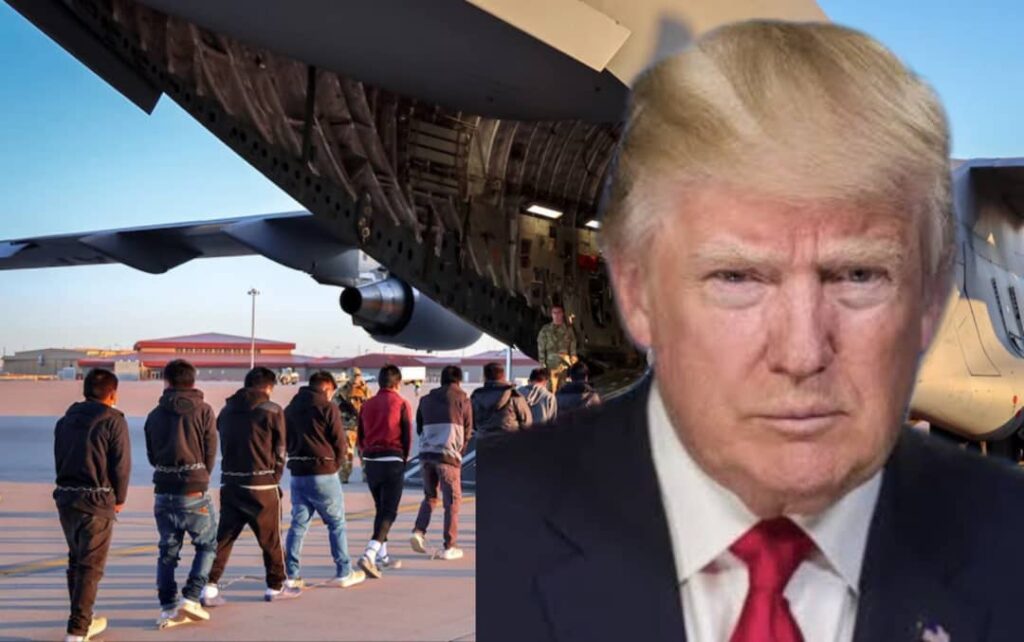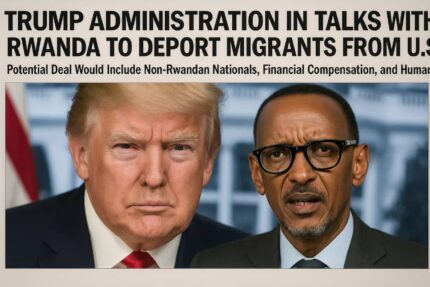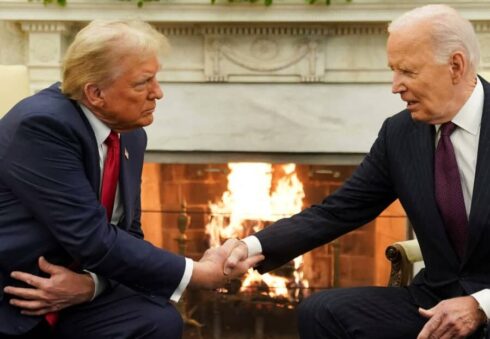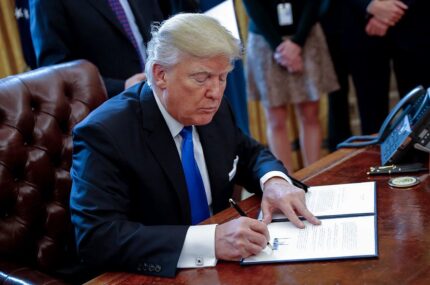The Trump administration and the government of Rwanda are deep in discussions over a potentially controversial agreement for Kigali to receive deportees from the United States, including individuals who are not Rwandan nationals. According to officials familiar with the matter, this arrangement could serve as a new avenue for the U.S. to offload migrants deemed undesirable under its tightened immigration enforcement policies.
A Rwandan official confirmed that the talks are ongoing, with key issues—including financial compensation for Rwanda’s cooperation—expected to be finalized in the coming weeks. U.S. officials have acknowledged the discussions but declined to disclose the number or nationalities of the individuals who may be deported to Rwanda. The potential deal mirrors other Trump-era efforts to use third-party countries as repositories for migrants expelled from the United States, regardless of their country of origin.
Rubio: “The Further Away from America, the Better”
In a blunt televised statement during a Cabinet meeting, Secretary of State Marco Rubio confirmed the administration’s strategy of seeking third countries willing to take in deported migrants. “We are working with other countries to say, ‘We want to send you some of the most despicable human beings,’” Rubio said, seated alongside President Donald Trump. He continued, “The further away from America, the better.”
Rubio’s comments have drawn criticism from immigration advocates who say the administration is prioritizing political optics over human rights and due process. His remarks also come amid growing concerns about the treatment of deportees in countries with questionable human rights records. Nevertheless, Rubio praised the work of Massad Boulos, Trump’s envoy to Africa and father-in-law of Tiffany Trump, noting that Boulos had been instrumental in pushing both economic and diplomatic engagement with East Africa.
Precedent and Concerns: Rwanda’s Role in Third-Country Deportations

Rwanda’s willingness to accept non-nationals mirrors a previous controversial arrangement with the United Kingdom. In 2024, the U.K. signed a deal to deport asylum seekers to Rwanda—a policy that ignited legal battles and was ultimately declared “dead and buried” by current British Prime Minister Keir Starmer upon taking office. Rwandan officials, however, say their country has “unique past experience” in handling such deportations and is capable of processing individuals from various national backgrounds.
Reports have surfaced suggesting that a recent deportation from the U.S. to Rwanda involved an Iraqi national, according to the Washington Post and CBS News. While Rwandan officials confirmed the deportation occurred, they offered no additional details about the individual or the legal process surrounding their removal. Human rights observers have raised alarm bells, noting that opaque deportation procedures could endanger migrants’ safety and violate international asylum laws.
Trump’s Broader Deportation Strategy and Global Partnerships
The Rwanda deal is part of a broader strategy under the Trump administration to expand the use of third-party countries for deportations. El Salvador has already entered into an agreement with the U.S. to accept deportees, including some who are imprisoned in the notorious CECOT prison in exchange for financial compensation. These arrangements have led to lawsuits and diplomatic tensions, especially when deported individuals were not nationals of the receiving country.
Additionally, countries such as Mexico and Panama have allowed similar arrangements under pressure from Washington. These tactics, while effective at reducing migrant presence on U.S. soil, have prompted debates about the ethical implications of what critics call “outsourced deportation.” Legal experts argue that sending migrants to countries with no legal obligation to receive them may contravene international conventions on human rights and refugee protection.
Rwanda Talks Coincide with U.S.-Brokered Peace Efforts in Central Africa
The deportation negotiations with Rwanda come at a diplomatically sensitive time. The United States is currently mediating peace talks between Rwanda and the Democratic Republic of Congo (DRC), two countries long locked in a conflict over regional influence and mineral wealth. Secretary Rubio revealed that he had recently overseen the signing of a “declaration of peace” between the two nations, a development he hopes will pave the way for permanent stability in the Great Lakes region.
Massad Boulos, Trump’s advisor for Africa, has played a key role in these peace efforts and has publicly promoted billion-dollar mineral deals across the continent. Critics argue that coupling immigration deals with economic and geopolitical negotiations could compromise transparency and accountability. Nonetheless, the Trump administration views its engagement with Rwanda as a strategic win that addresses multiple policy objectives, from immigration enforcement to resource diplomacy.














